Germany is a beautiful country to visit full of fairytale castles, beautiful rivers, canals, stunning parks and mountains – but there a few key pieces of information that will make your visit to our adopted homeland more enjoyable. After several years of living here and shepherding relatives and friends around, I have collated some Germany travel tips for you.
My 10 Germany travel tips
Carry nothing but plastic
It is really odd at first, but cash is the deal here. Many restaurants and small shops won’t take cards of any kind, so it’s worth checking or looking for a sign as soon as you come in. Because it’s less fun to discover this when you go to pay, and have no idea where the nearest bank machine is. Most waitstaff are prepared for this eventuality, but they will still roll their eyes at you. I know, I know, but Germans on average are quite distrustful of payment technology of any kind. Apple Pay? Er no.
Cross the road against the crossing light, especially with kids
This is a huge no-no. You wait for the Ampelmann (the crosswalk light guy), even if no cars are coming. If you have kids with you, or there are kids also waiting, crossing against the light is an absolute travesty. People will yell at you about being a child murderer, or you will get a stern dressing down in German. The idea is, we are all examples to children, and by crossing against the pedestrian light, you are showing children that it’s okay to ignore it – and the next time they might get hit by a car! I have stood at a road crossing that most North Americans would term an alley, with not a single car within three blocks, along with four other people – I had my son with me so no one was going to go. Hilariously, our Swiss friends roll their eyes at this and run across the road whenever, so this seems to be a German only phenomenon.
Ignore bike lanes
Bike lanes in Germany often take up part of the sidewalk, and can be quite subtly marked. In Munich, for instance, the paving stones are a different direction, but nearly the same colour. Sometimes the bike lanes will be painted dark red. They are also heavily used, particularly in warm weather but pretty much year round. Don’t back into a bike lane while taking a photo, stand in the middle of one while waiting to cross the road, or generally assume it doesn’t apply to you – cyclists are often going quite fast and it is up to you to get out of the way if you’re in their lane. If you rent a bike, it’s also worth noting that it’s illegal to ride on the sidewalk, unless you’re in a bike lane OR riding with a child who is on their bike – this changed in January 2017, so not everyone may know this rule about riding on the sidewalk with kids, so you may still get shouted at. Also, all those little one-way roads? The one way applies to bikes as well, unless you see a bike symbol with the word ‘frei’ underneath. I’ve seen police officers stop and tell people off for riding their bikes the wrong way on a one-way street.
Expect tap water at a restaurant
Don’t even bother asking, because it’s not going to happen. You pay for a bottle of water, and that’s it – and if you don’t want sparkling you have to be very clear! Sometimes if you have children and you’re obviously not German the waitstaff will take pity on you, but don’t expect this in Munich or Berlin. If you want still and not sparkling, you can ask for ‘Stillwasser’ (pronounced SCHtillwassah) or in English they may ask if you want water with gas or without, and the ‘gas’ refers to carbonation, not petrol or gas you put in your car. I know someone who, when she asked repeatedly for tap water, was given a glass and told to fill it in the bathroom. All the more reason to try the local beer and wine, really. Or Apfelschorle (apple juice mixed half and half with sparkling water) for kids.
Think you’re going shopping on a Sunday
Nothing but restaurants are open on Sundays, and not even all of those, or for the whole day. No grocery stores, no shops… nothing. Bakeries will be open for three or four hours, and that’s generally in the morning. The idea is we should all be spending Sundays with our families out and about. You will see herds of German folks out for hikes, walks, and bike rides. The other thing we do on Sundays is go to the museum or the art gallery – so those are generally open, but you will want to check ahead, particularly in smaller towns. The one exception are shops in tourist areas, so some souvenir shops will be open, but don’t count on it. I watched American tourists trying every shop door in Rothenburg ob der Tauber and wailing about nothing being open. I admit, it takes some getting used to, but once I did, I really started to appreciate the tradition of going for a walk or a hike with your family on a Sunday. If you do take part in this national activity, the polite thing to do is to nod at each group you pass, smile, and say hello.
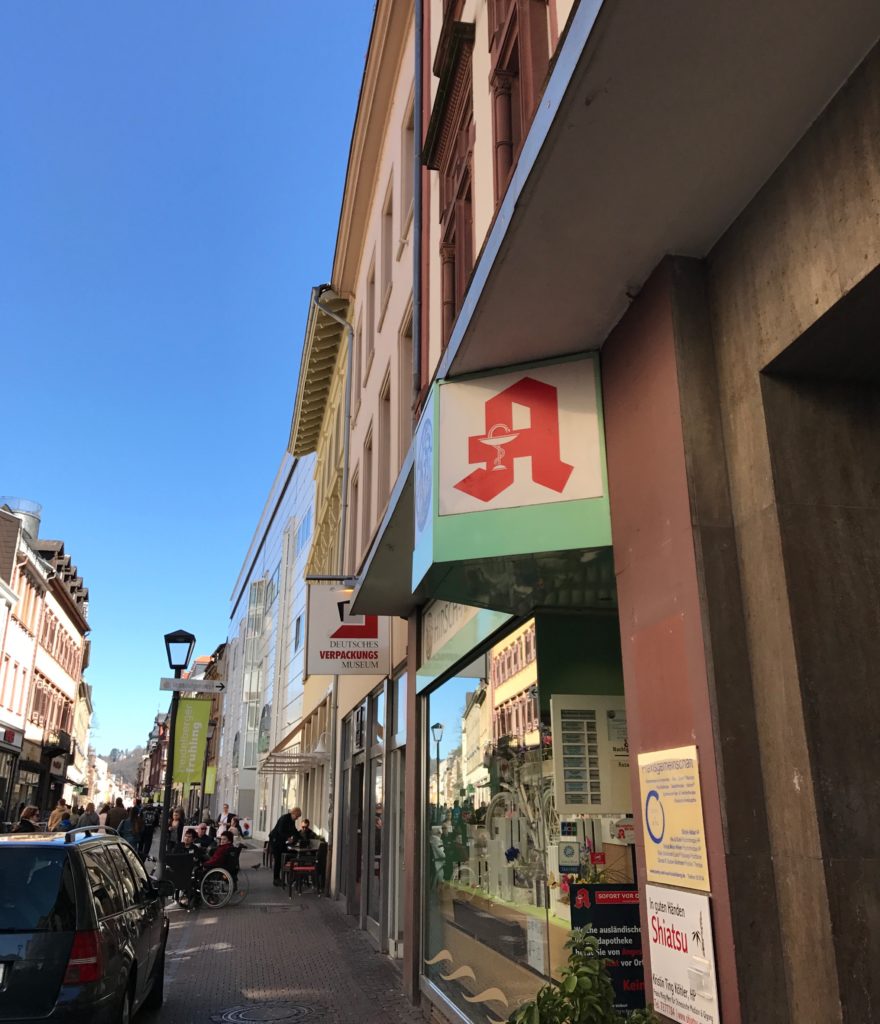
Try to buy medication of any kind anywhere but the little pharmacy
Even the shops like dm and Rossman, that would have basic painkillers and things like that in North America or the UK, will only have vitamins. You will need to go to an Apotheke, easily identifiable by a big red A outside, and ask at the counter. For everything. Look up what you need on Google Translate beforehand, or bring a package with you. It’s worth knowing that there’s always an emergency Apotheke open on Sundays, but it’s only one per area and it rotates, so use Google and type in ‘Notdienst Apotheken [city name]’ (Notdienst = emergency service), or ask at your hotel if you need one. Also, they close at 2pm on Saturdays, and often on Wednesday afternoons. Plan ahead if you know you need a medication.
Assume everyone speaks English
People will tell you that everybody speaks English in Germany, and most people speak a little bit, this is true. But I find most of the people who will say this have been to Berlin, Frankfurt, or Munich, and that’s it. Wander away from these big cities and you will find the English-speaking rate go down significantly. If you think back to the second language you learned in high school, and how you’d feel if someone walked up to you and started speaking it to you with no warning, and expected you to understand… you’ll understand the panicked look you sometimes get if you start speaking English to a German person. It’s only polite to say hello, and ask if the person speaks English in German first (‘Sprecken sie Englisch?’) before launching into your question. Better yet, learn a wee bit of German. It’s worth knowing that English was only required in school in the late 1970s or so, people older than 45 will be unlikely to speak English well. Also, if you’re traveling in the former East Germany, they did not learn English in school at all until reunification, so expect the number of English speakers to be even lower.
Eat at the restaurant directly outside the train station
This is a standard one pretty much everywhere in Europe, but the first restaurants outside the train station will be rubbish. Walk for five minutes, and you are sure to find something much better. If you’re desperate, the bakery chains inside the train station are fine for a quick bite and a coffee, though it’s essentially fast food so unlikely to be wonderful.
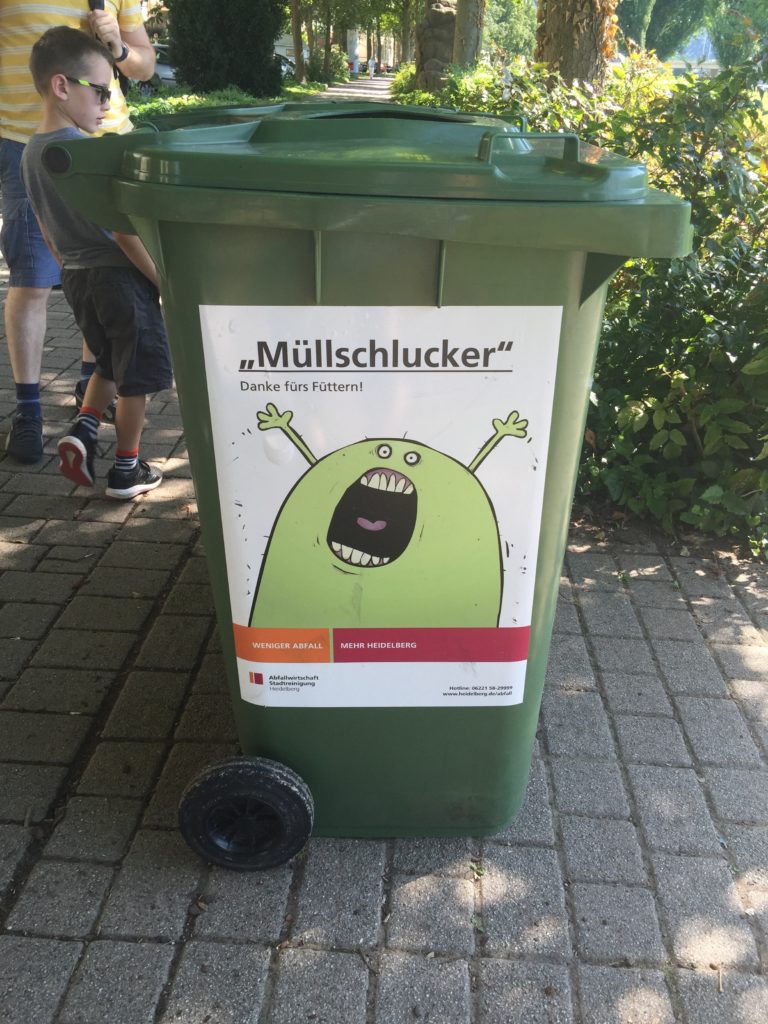
Get offended when a local tells you not to do something
German people can be quite… direct. It doesn’t help that what you can say in German with perfect politeness comes across as a demand when translated word-for-word into English. They are very proactive when it comes to telling strangers they’ve done something wrong – from going in the wrong door, to putting things in the wrong recycling bins. However, it also stretches to telling you if you’ve dropped something out of your stroller, or you’ve left your cardigan on a chair. Also, it’s worth understanding that unlike North American and British cultures, there’s often no judgement attached to the correction. It’s not about you being an idiot, it’s just about making everyday life smoother for everyone.
Make small talk with your cashier
Generally, Germans are not big on small talk. It’s completely fine, and expected, to stand there in silence as the cashier rings through your purchases. At the end, a ‘Schönen Tag’ (have a nice day) or a cheerful ‘Tchüss!’ (Bye!) is the polite way to finish your interaction. Any kind of extraneous conversation, particularly in English, will hold up the queue and you will immediately hear grumbling and muttering from everyone behind you. I know it feels odd to North Americans and Brits, friendly Americans in particular, but trust me – it’s just not the way here. Just stand there and smile, pack your groceries really REALLY quickly into a reusable bag (the cashiers never pack for you in Germany), and have your method of payment ready to go. If you need to rearrange things, there is often space to do so beyond the cashiers, but you’re expected to clear out of the way quickly.
DO
Ask a local where to eat
They are thrilled to be consulted, on average, and will be happy to suggest the best German restaurant, cafe or whatever else you’re searching for. They will even enlist other strangers, it’s beyond sweet. I’ve had people write me lists on the spot, they are so keen. And I’ve not been let down by their suggestions once yet!
Learn a little German
It will make your life much easier. While yes, in a pinch you will find someone who speaks English, this doesn’t help when you’re in a grocery store trying to find something, or when faced with signs at the train station, bus stop, or pretty much anywhere. Germany has a robust German-language tourist industry, so just because something is touristy doesn’t mean all the signs will be in English. You don’t need to sign up for a class or anything, but a few minutes a day of Duolingo for a week before you go will at least ensure you can read the bathroom signs correctly!
PS – Need help with packing for Germany? I’ve got you covered for packing for your Germany trip in spring or summer.
Pin it for later!
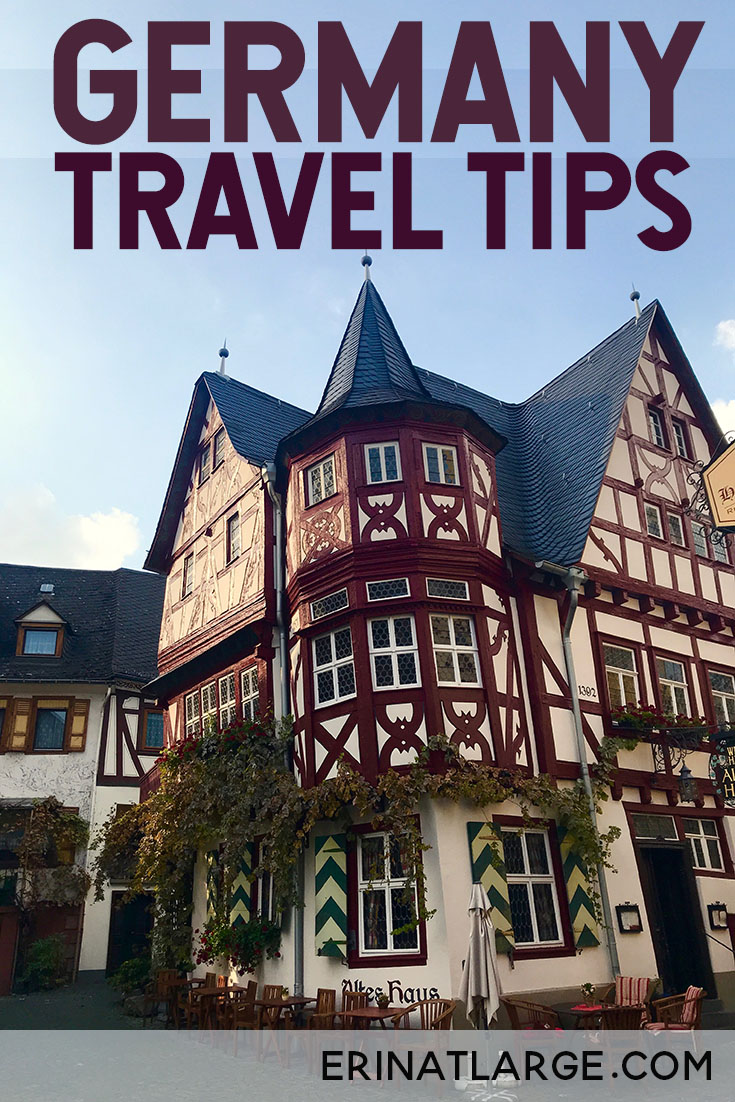

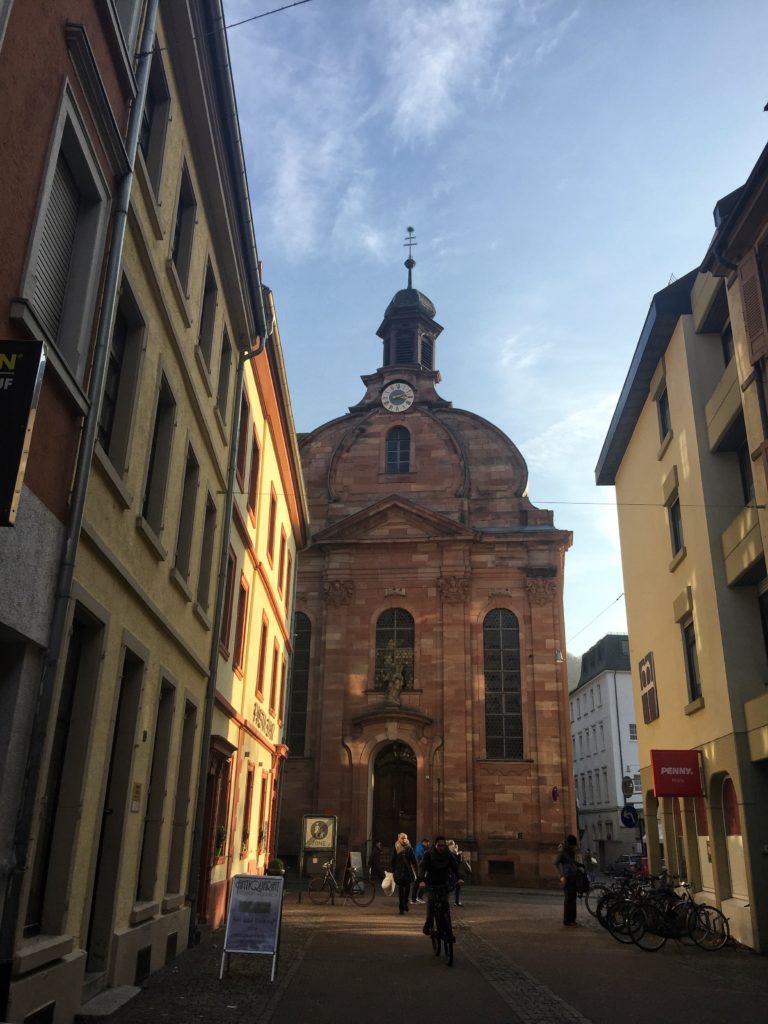
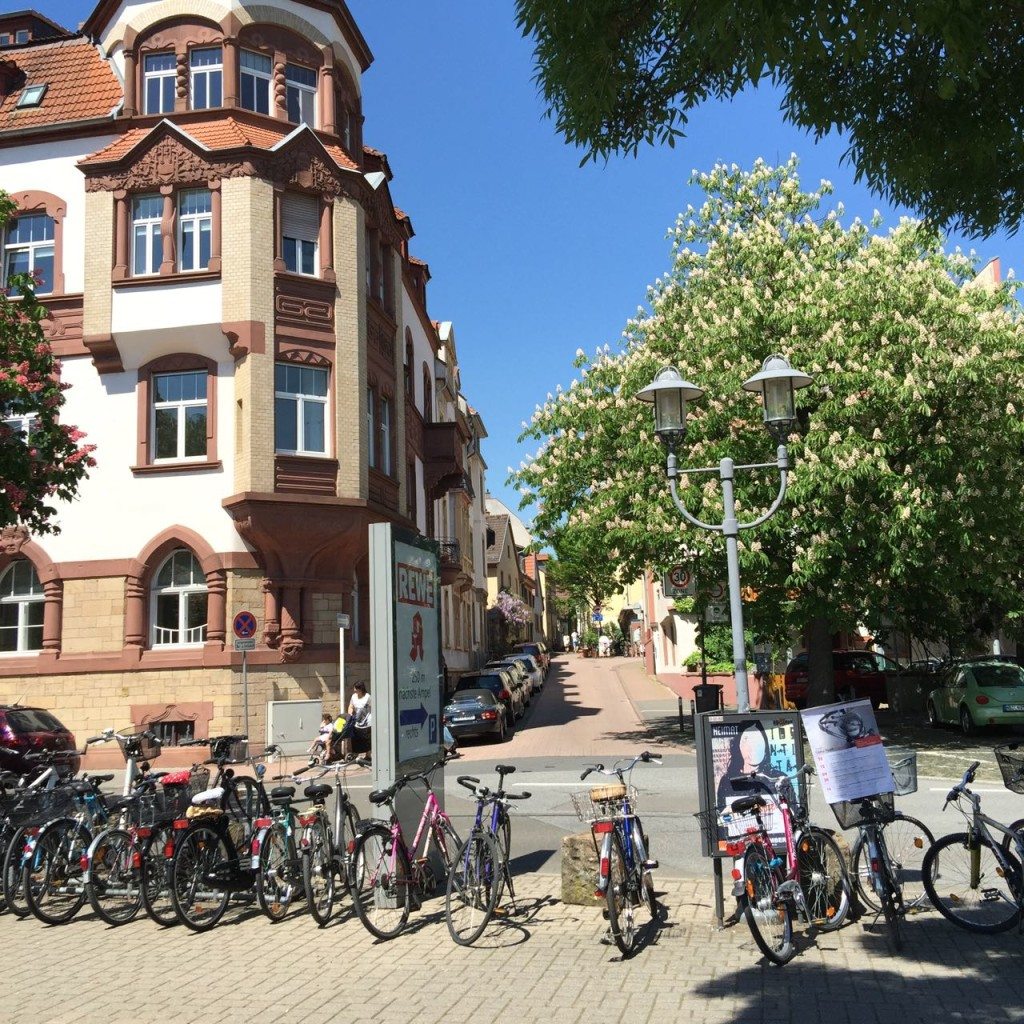
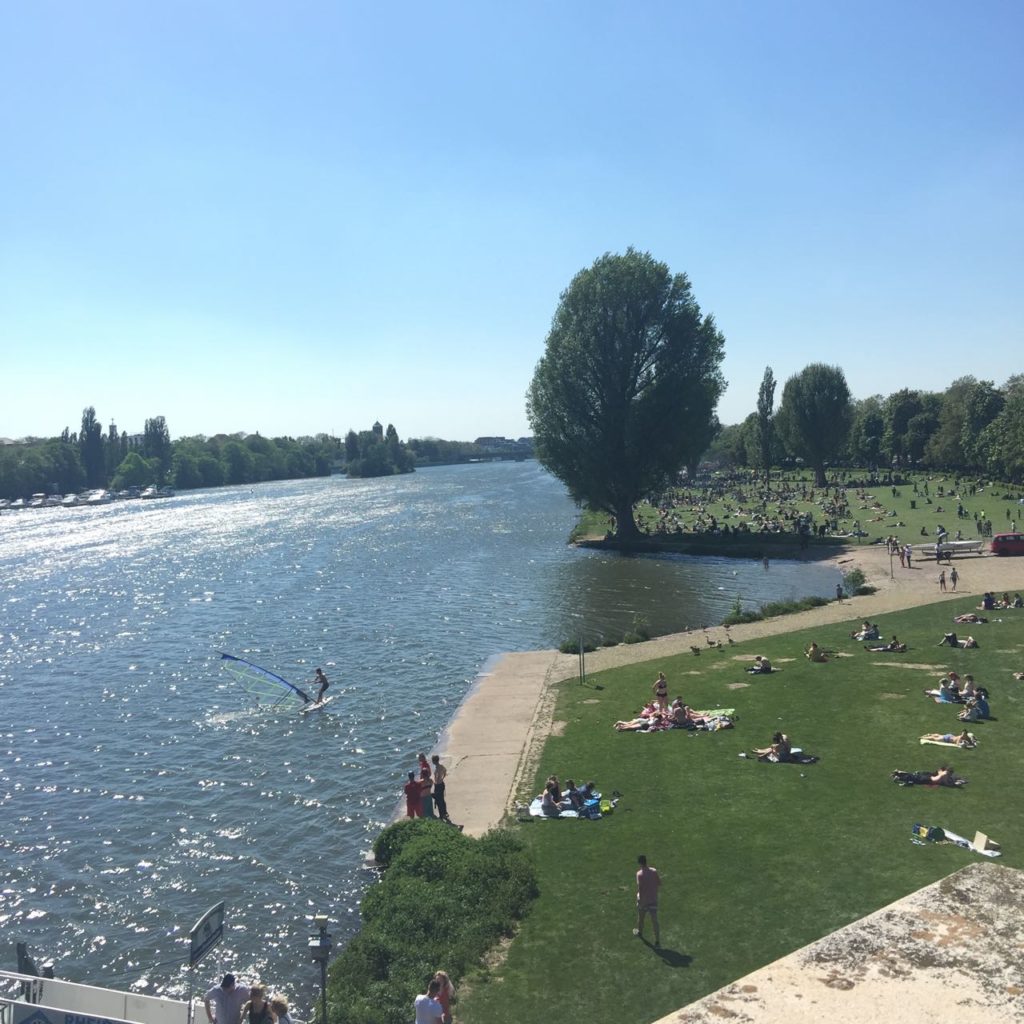
Pingback: October Acres - Things to do in Berchtesgaden - October Acres
Most of these apply to Finland too…except we won’t yell at you. We will murmur something about drunken stupid tourists in Finnish 😀 So do take these advices to your Finland holiday too and MAYBE you’ll even get a smile 😉